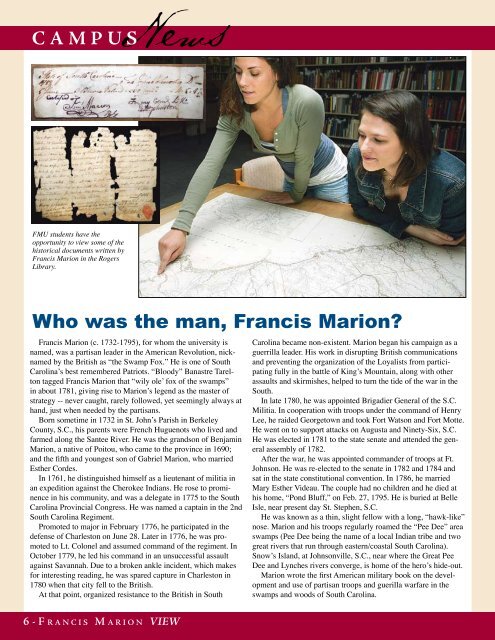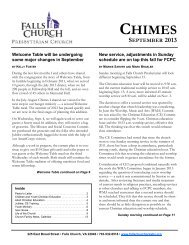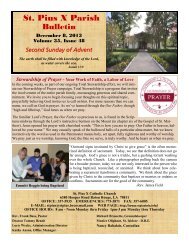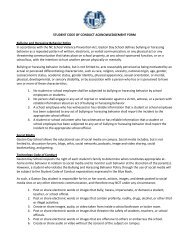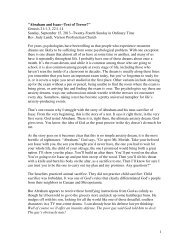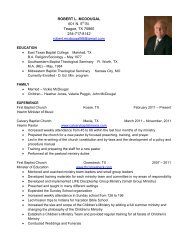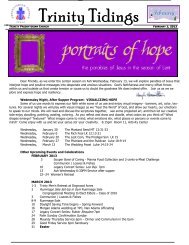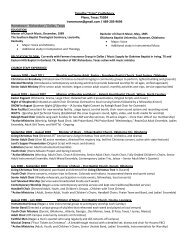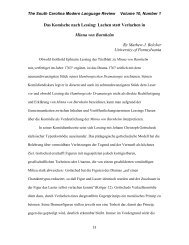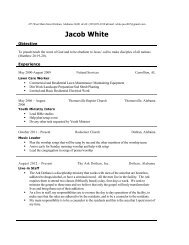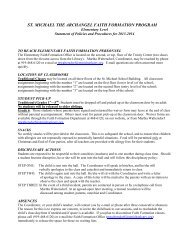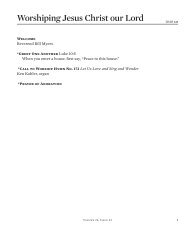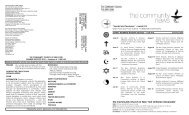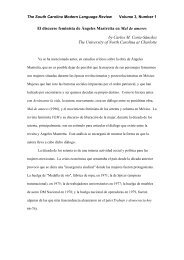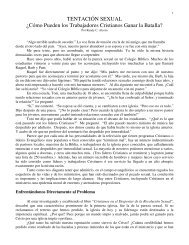Francis Marion University - ACS Integration: Home
Francis Marion University - ACS Integration: Home
Francis Marion University - ACS Integration: Home
You also want an ePaper? Increase the reach of your titles
YUMPU automatically turns print PDFs into web optimized ePapers that Google loves.
News<br />
C A M P U S<br />
FMU students have the<br />
opportunity to view some of the<br />
historical documents written by<br />
<strong>Francis</strong> <strong>Marion</strong> in the Rogers<br />
Library.<br />
Who was the man, <strong>Francis</strong> <strong>Marion</strong>?<br />
<strong>Francis</strong> <strong>Marion</strong> (c. 1732-1795), for whom the university is<br />
named, was a partisan leader in the American Revolution, nicknamed<br />
by the British as “the Swamp Fox.” He is one of South<br />
Carolina’s best remembered Patriots. “Bloody” Banastre Tarelton<br />
tagged <strong>Francis</strong> <strong>Marion</strong> that “wily ole’ fox of the swamps”<br />
in about 1781, giving rise to <strong>Marion</strong>’s legend as the master of<br />
strategy -- never caught, rarely followed, yet seemingly always at<br />
hand, just when needed by the partisans.<br />
Born sometime in 1732 in St. John’s Parish in Berkeley<br />
County, S.C., his parents were French Huguenots who lived and<br />
farmed along the Santee River. He was the grandson of Benjamin<br />
<strong>Marion</strong>, a native of Poitou, who came to the province in 1690;<br />
and the fifth and youngest son of Gabriel <strong>Marion</strong>, who married<br />
Esther Cordes.<br />
In 1761, he distinguished himself as a lieutenant of militia in<br />
an expedition against the Cherokee Indians. He rose to prominence<br />
in his community, and was a delegate in 1775 to the South<br />
Carolina Provincial Congress. He was named a captain in the 2nd<br />
South Carolina Regiment.<br />
Promoted to major in February 1776, he participated in the<br />
defense of Charleston on June 28. Later in 1776, he was promoted<br />
to Lt. Colonel and assumed command of the regiment. In<br />
October 1779, he led his command in an unsuccessful assault<br />
against Savannah. Due to a broken ankle incident, which makes<br />
for interesting reading, he was spared capture in Charleston in<br />
1780 when that city fell to the British.<br />
At that point, organized resistance to the British in South<br />
6 - F R A N C I S M A R I O N VIEW<br />
Carolina became non-existent. <strong>Marion</strong> began his campaign as a<br />
guerrilla leader. His work in disrupting British communications<br />
and preventing the organization of the Loyalists from participating<br />
fully in the battle of King’s Mountain, along with other<br />
assaults and skirmishes, helped to turn the tide of the war in the<br />
South.<br />
In late 1780, he was appointed Brigadier General of the S.C.<br />
Militia. In cooperation with troops under the command of Henry<br />
Lee, he raided Georgetown and took Fort Watson and Fort Motte.<br />
He went on to support attacks on Augusta and Ninety-Six, S.C.<br />
He was elected in 1781 to the state senate and attended the general<br />
assembly of 1782.<br />
After the war, he was appointed commander of troops at Ft.<br />
Johnson. He was re-elected to the senate in 1782 and 1784 and<br />
sat in the state constitutional convention. In 1786, he married<br />
Mary Esther Videau. The couple had no children and he died at<br />
his home, “Pond Bluff,” on Feb. 27, 1795. He is buried at Belle<br />
Isle, near present day St. Stephen, S.C.<br />
He was known as a thin, slight fellow with a long, “hawk-like”<br />
nose. <strong>Marion</strong> and his troops regularly roamed the “Pee Dee” area<br />
swamps (Pee Dee being the name of a local Indian tribe and two<br />
great rivers that run through eastern/coastal South Carolina).<br />
Snow’s Island, at Johnsonville, S.C., near where the Great Pee<br />
Dee and Lynches rivers converge, is home of the hero’s hide-out.<br />
<strong>Marion</strong> wrote the first American military book on the development<br />
and use of partisan troops and guerilla warfare in the<br />
swamps and woods of South Carolina.


